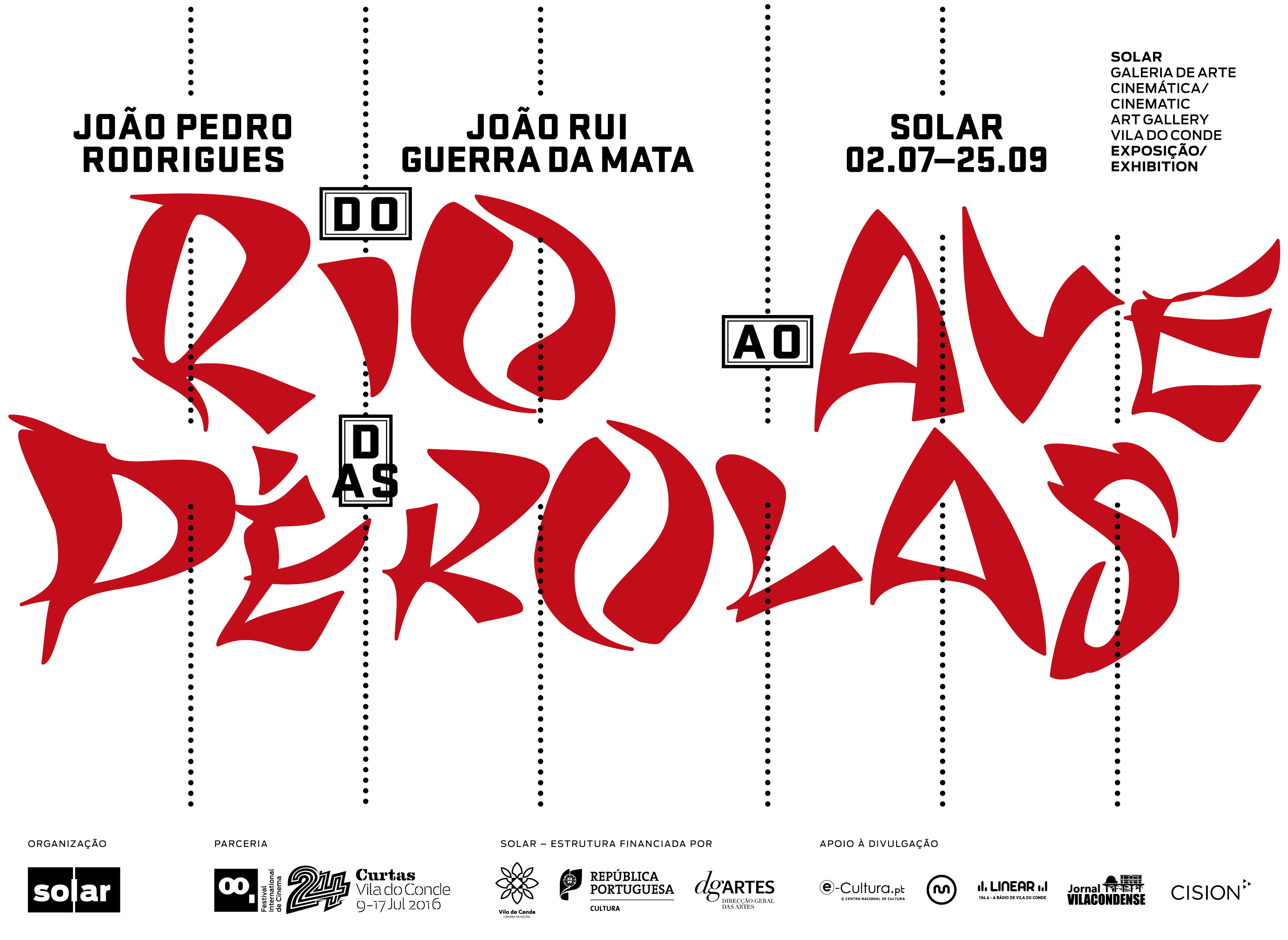EN
DO RIO DAS PÉROLAS AO AVE
João Rui Guerra da Mata I João Pedro Rodrigues
02.07 - 25.09.2106
Some directors make the reputation of Portuguese cinema as a ‘cinéma d’auteur’, of great quality and strong artistic character, as opposed to the commercial action cinema. Recognizing this fact, although some skepticism that is typical from the Portuguese culture may still subsist, it has its basis on the relevant repercussion that it receives on prestigious international venues - such as Cannes, Berlin, Venice, Locarno, among others - increas- ing its importance when receiving awards or special mentions. João Pedro Rodrigues is one of the greatest authors of a new generation of Portuguese cinema and is among those who, since early times, achieved a certain noto- riety, given by the considerable impact received by Rodrigues’ first feature film “O Fantasma”, premiered in 2000, or through the presence in 2005 of “Odete” in Cannes and its following auspicious reviews, as an example. One has to consider that João Pedro Rodrigues’ work, the most recognizable of a wider filmography despite of whom signed each project, is directed in close collaboration with João Rui Guerra da Mata. From the connection between the two other interactions emerge alongside a permanent dialogue that fre- quently places cinema in a different territory, afar from the mere relation with the audience facing a cinema screen. It has a broader meaning, an emphasis that belongs to a different domain, the one of the arts, or so to increase the complexity of paradigms more common on other areas of contemporary
art, the domain of the performing arts. Amongst the most relevant titles of the Portuguese contemporary cinema, João Pedro Rodrigues and João Rui Guerra da Mata’s films can be considered the ones that are most related to installation pieces or performative acts, and yet they are still films. This is the main reason why the artistic directors of Curtas Metragens CRL addressed a very special invitation to both directors/artists so that they could create a site specific project for Solar – Cinematic Art Gallery during an extended period that overlaps with the 24th edition of Curtas Vila do Conde.
The close collaboration between the two authors and Curtas is long and filled with intense moments, namelly with the screening of Rodrigues’ and Guerra da Mata’s short films in competitive programs, their presence as jury members from both national and international competitions, or as co-direc- tors of one of the short films of the “Estaleiro” program, entitled “Mahjong”, premiered in 2013, after a film shooting made entirely in Vila do Conde, specifically on the largest Portuguese Chinatown, Varziela.
From this relationship that began in 1998 after the screening of “Parabéns!” - the first short film professionally directed by João Pedro Rodrigues - to the presentation of other short-films directed by him or by João Rui Guerra da Mata, the seed for a new creative process was planted and that would lead to the exhibition and a parallel program presented here. Inevitably, the unde- niable creative capacity of the directors/artists led to the exploration of their works according to unusual presentation formulas and, for the most part, never tested. They are not films anymore, they are installations, entirely new works that connect the films and the space – across the uneven and hidden configuration of the gallery - through a dialogue made real in different media and materials, adding value and opening them to new interpretations.Mário Micaelo
go back



Solar - Galeria de Arte Cinemática is part of RPAC - Portuguese Network of Contemporary Art

Address
Rua do Lidador, 139
4480-791 Vila do Conde
Rua do Lidador, 139
4480-791 Vila do Conde
Schedule
Monday to Saturday
2:00 pm to 6:30 pm
Closed on Sunday
Monday to Saturday
2:00 pm to 6:30 pm
Closed on Sunday
Contacts
Gallery: solar@curtas.pt
Educational Service: s.educativo@curtas.pt
Press: press@curtas.pt
Office: 252 646 516
Curtas Store: 252 138 191
Gallery: solar@curtas.pt
Educational Service: s.educativo@curtas.pt
Press: press@curtas.pt
Office: 252 646 516
Curtas Store: 252 138 191

